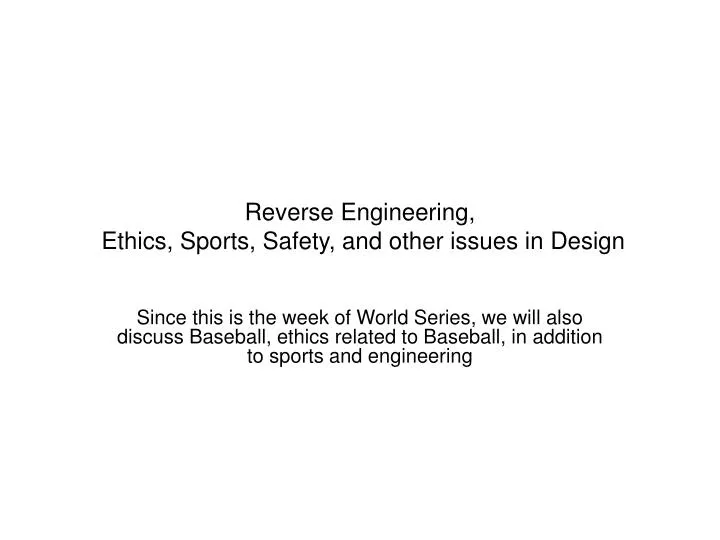Reverse Engineering Ethics

Reverse engineering, the process of deconstructing a device or system to understand its design and function, poses important ethical considerations. While legal in many jurisdictions, ethical concerns arise when it involves unauthorized access to proprietary information or the potential misuse of knowledge gained.

Proprietary Information and Intellectual Property

One primary ethical concern is the unauthorized access to proprietary information. Reverse engineering a device or software may involve examining protected design secrets, patents, trademarks, or copyrights. Unauthorized access to such information could violate intellectual property laws and lead to legal consequences. It is essential to respect the rights of inventors and innovators to protect their creations.
Misuse of Knowledge
Another ethical concern lies in the potential misuse of knowledge gained from reverse engineering. While the process itself may be legitimate, the acquired knowledge could be used for malicious purposes. For example, reverse engineering a software system could reveal security vulnerabilities that could be exploited for cyberattacks. Ethical engineers have a responsibility to consider the potential consequences of their work and avoid contributing to harmful activities.
Transparency and Disclosure
Transparency and disclosure are vital ethical considerations in reverse engineering. Engineers should clearly disclose the source of their knowledge and any modifications made to the original design. Failing to do so could lead to confusion, misattribution, and potential legal disputes. It is important to acknowledge the contributions of others and respect their intellectual property rights.
Purpose and Justification
The purpose of reverse engineering and the justification for accessing proprietary information should be carefully considered. Legitimate purposes include research, education, interoperability, and debugging. However, reverse engineering for malicious purposes or for profit without authorization is unethical. Engineers should weigh the potential consequences and benefits of their actions before engaging in reverse engineering.
Professional Standards and Codes of Ethics
Professional engineering societies and organizations have established codes of ethics that guide engineers in their conduct. These codes typically emphasize integrity, honesty, and respect for intellectual property. Engineers should adhere to these ethical standards to maintain the integrity of their profession and uphold public trust.
By understanding and adhering to these ethical considerations, engineers can ensure that reverse engineering is conducted responsibly and ethically. It is essential to strike a balance between innovation, intellectual property rights, and the potential for harm to avoid ethical dilemmas and legal entanglements.
